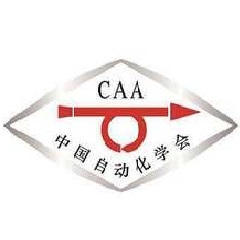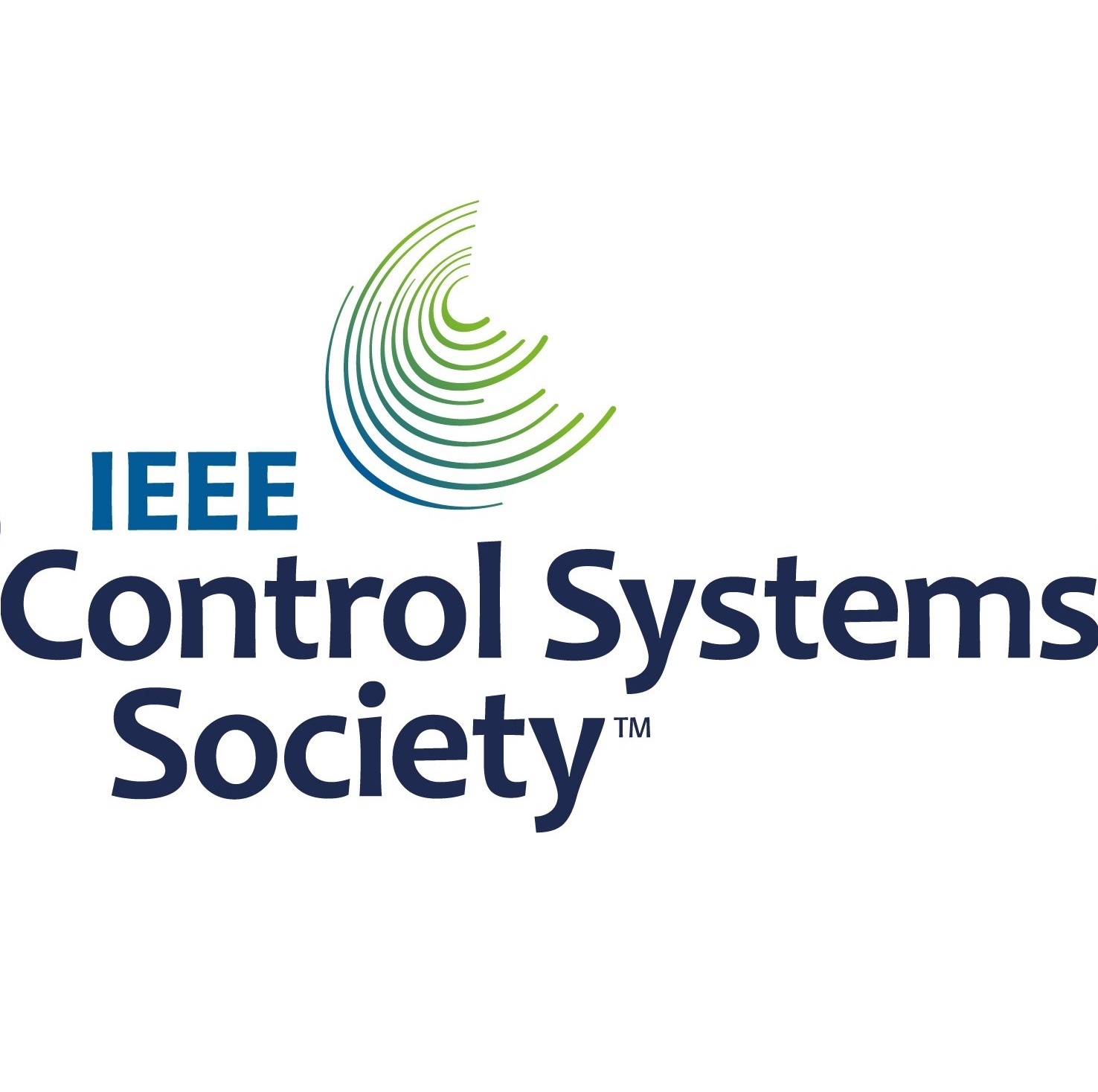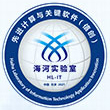Development Forum 2
Education Reform on Automatic Control Chairs: Quan Pan (Northwestern Polytechnical University, China)
Ding Liu (Xi'an University of Technology, China) |
Panelists: Guang-Hong Yang (Northeastern University, China)
Chunhua Yang (Central South University, China)
Zhigang Zeng (Huazhong University of Science and Technology, China)
Wenli Du (East China University of Science and Technology, China)
Qingyu Yang (Xi'an Jiaotong University, China)
Zhunga Liu (Northwestern Polytechnical University, China)
Abstract: Talent cultivation is always a very important task in universities. With the rapid development of automatic control technology, the contents and targets of talent cultivation related to automatic control have been changed. In this development forum, we have invited experts and scholars from well-known universities to introduce relevant reform and innovation measures in fields of new engineering major of "Intelligence + Automation", cultivating cross-innovation talents for intelligent manufacturing, the development of artificial intelligence research, cultivating high-level talents in process industry automation, enhancing the autonomous talent cultivation quality and training mode for aerospace characteristic automation talents. This forum provides an opportunity for interested participants to interact with the experts in this field.

Speaker: Guang-Hong Yang, Northeastern University, China
Title: Exploration and Practice of the New Engineering Major construction of “Intelligence + Automation”
Abstract: This report presents the construction of the new engineering major of "Intelligence + Automation" at Northeastern University, with a focus on the College of Information Science and Engineering in this field. Drawing from Northeastern University's new engineering reform in automation, industrial intelligence, artificial intelligence, and strong foundation plan, this report discusses the layout and positioning of the new engineering majors and the corresponding efforts to build knowledge systems in the interdisciplinary fields of automation and artificial intelligence. Additionally, the report showcases the education reform achievements in the aspects of major curriculum system, teaching resource construction, and quality assurance system reform. Finally, we discuss the overall design, construction ideas, and specific measures for the construction of the "Intelligence + Automation" new engineering majors.
Guang-Hong Yang received his B.S. and M.S. degrees in Mathematics, and Ph.D. degree in control theory and control engineering with Northeastern University, Shenyang, China, in 1983, 1986, and 1994, respectively. He is currently a chair professor and the dean with the College of Information Science and Engineering, Northeastern University. He is an IEEE Fellow and a Fellow of Chinese Association of Automation (CAA). Dr. Yang has been a general chair of the annual Chinese Control and Decision Conference (CCDC) since 2011, and is the Editor-in-Chief for the Journal of Control and Decision, an Editor for the International Journal of Control, Automation (IJCAS), and the Chair of the Technical Committee on Control and Decision for Cyber-Physcial Sytems, CAA. His current research interests include fault-tolerant control, fault detection and isolation, safety of cyber-physical systems, and unmanned systems. He has published 3 monographs and over 400 papers in the international journals, and is a highly cited researcher (since 2019) selected by Clarivate.
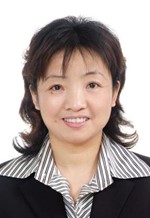
Speaker: Chunhua Yang, Central South University, China
Title: Mode thinking and exploring in cultivating cross-innovation talents for intelligent manufacturing
Abstract: The fusion of information technology and production technology is the key to realize intelligent manufacturing. Cross-innovation talent is the active force in promoting the intelligent production level of process industries. Facing the major need for intelligent manufacturing, the School of Automation, Central South University dedicated to cultivate the cross-innovation capability of students, explore an ‘interdisciplinary, science-academic-industry integrating', 'industry, university, research and application' collaborative cultivating mode, teaching and innovation capability cultivating system. We introduce research results and engineering cases into textbook, and guide students to carry out innovation in the whole process of 'topic selection-scientific problem extraction-theoretical method research-engineering application tackle'. All these efforts have contributed to the teaching and learning atmosphere of ‘Devoting to research, willing to contribute to the industry', which is aimed to train talents with cutting-edge innovation, technical research and development, and leading capabilities for the industry.
Chunhua Yang is the Dean of the School of Automation, Central South University. She was the winner of the National Science Fund for Distinguished Young Scholars, IEEE Fellow. She is now the Director of " Industrial Intelligence and Systems" Key Laboratory of Ministry of Education. Her current research interests include modeling and optimizing control of complex industrial processes, intelligent automation systems and devices, and intelligent manufacturing in process industries. She has published 4 research monographs and more than 200 research papers in international referred journals, and authorized over 100 national invention patents. She has won numerous prestigious awards, including the Second Prize of National Technological Invention Award for 1 time, and the Second Prize of National Science and Technology Progress for 4 times. She honored National Innovation Excellence Award, the National Model for Women's Merit, and the Baosteel Outstanding Teacher Special Prize. Prof. Yang serves as an Associate Editor for a number of journals, including IEEE Transactions on Industrial Electronics, IEEE/ASME Transactions on Mechatronics. She also serves as the vice chairman of the IFAC Technical Committee on Mining, Mineral and Metal Processing (IFAC MMM), the chairman of the Automation Academic Committee of the China Nonferrous Metals Society, and the chairman of Working Committee of Women Scientists and Technologists of Chinese Association of Automation.
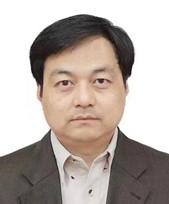
Speaker: Zhigang Zeng, Huazhong University of Science and Technology, China
Title: Preliminary Thoughts on the Development of Artificial Intelligence Research in Huazhong University of Science and Technology
Abstract: Artificial intelligence (AI) is a transformative technology that is driving the current technological revolution and reshaping industries. Similar to previous breakthroughs like steam engines, computers, and the internet, AI has a profound impact on the work and daily life of human kind. It represents a rare general-purpose technology in human history, requiring significant societal changes to harness its potential for the benefit of humanity. The New Generation AI Development Plan issued by the State Council on July 8th, 2017 identified eight fundamental theories of artificial intelligence, namely: (1) Big Data Intelligence Theory; (2) Cross-media Perception and Computation Theory; (3) Hybrid Enhanced Intelligence Theory; (4) Swarm Intelligence Theory; (5) Autonomous Cooperative Control and Optimization Decision Theory; (6) Advanced Machine Learning Theory; (7) Neuromorphic Intelligent Computation Theory; (8) Quantum Intelligent Computation Theory.
Building upon the results and achievements in artificial intelligence theoretical research at our university, the following research areas would be our focus in the future: (1) Big Data Intelligence and Advanced Computation; (2) Intelligent Perception and Machine Learning; (3) Neuromorphic Intelligent Computing Chips and Systems; (4) Cross-domain Unmanned Systems and Swarm Intelligence; (5) Human-Machine Fusion and Intelligent Control. For each area, a research platform and an expert academic team specialized in the corresponding theories will be established.
Considering our university's strengths in domains such as healthcare, urban construction, and manufacturing, we also plan to establish “AI+” research centers with a focus on the application of AI in specific fields. These centers will encompass various domains including healthcare, transportation, ubiquitous power Internet of Things (UPIoT), communication, construction, and manufacturing.
Zhigang Zeng, IEEE Fellow, Professor, the dean of the School of Artificial Intelligence and Automation of Huazhong University of Science and Technology, and the director of the Key Laboratory of Image Information Processing and Intelligent Control of the Ministry of Education. He received his PhD in System Analysis and Integration from Huazhong University of Science and Technology in June 2003. He did postdoctoral research at the Chinese University of Hong Kong and the University of Science and Technology of China. He served as the editorial board member of IEEE Transactions on Neural Networks, IEEE Transactions on Cybernetics, IEEE Transactions on Fuzzy Systems, Cognitive Computation, Neural Networks, Applied Soft Computing, Acta Automatica Sinica, Control Engineering, Systems Engineering and Electronics, and Control Theory and Applications. He has been awarded the first prize of Natural Science Award for Outstanding Achievements in Scientific Research of Higher Education Institutions by the Ministry of Education, the first prize of Natural Science Award of Hubei Province, the first prize of Science and Technology Progress Award of Hubei Province, and the second prize of National Science and Technology Progress Award, etc.

Speaker: Wenli Du, East China University of Science and Technology, China
Title: Practice on cultivating high-level talents in process industry automation
Abstract: As the pillar and basic industry of the national economy, the process industry has laid the foundation of the development of China’s real economy. Comprehensively improving the cultivation quality of high-level talents, training high-level innovative talents who will lead the digital and intelligent transformation and development of the process industry is of great significance contributing to the strategy of building China into a manufacturer of quality. Aimed at solving the mismatch between the knowledge structure of targeted talent training and industry/engineering demands, the lack of the innovation ability of students to solve engineering problems in practice and the unclear training way of compound high-level talents, we systematically make an exploration from the three aspects: the course study, the training mode and mechanism. Under the guidance of the education concept “doing research aimed at solving real problems”, we consolidate the foundation of the course study, explore the talent training model that integrates theory and practice, and strengthen the connotation construction of collaborative education, which are "multidisciplinary integration, science and education integration, production-education integration, and international cooperation", the quality of talent training is significantly improved. A new paradigm of cultivating high-level engineering and technology talents in process industry engineering is established. A good demonstration effect is achieved.
Wenli Du is currently the Dean of the Graduate School, the Deputy Director of the Key Laboratory of Smart Manufacturing in Energy Chemical Process of Ministry of Education, and a member of Control Science and Engineering Discipline Appraisal Group of Academic Degree Commission of the State Council. Her current research interests include industrial process modeling, control, optimization and fault diagnosis and artificial intelligence and machine learning.Professor Du was the Winner of the National Science Fund for Distinguished Young Scholars, National High-level Talent, and Head of the Innovation Team of Ministry of Science and Technology. She has won 5 Second Prizes of the State Scientific and Technological Progress Award and 12 first prizes of provincial and ministerial-level Scientific and Technological award. She has 50 national invention patents authorized and 60 pieces of national computer software copyright successfully registered. She has published more than 200 papers indexed by SCI and EI. Professor Du is an Associate Editor for 7 international journals, including the Industrial & Engineering Chemistry Research, the Computers & Chemical Engineering, Complex & Intelligent Systems and Frontiers in Chemical Engineering.

Speaker: Qingyu Yang, Xi'an Jiaotong University, China
Title: Enhancing the Autonomous Talent Cultivation Quality through the Leadership in Disciplinary Construction
Abstract: This talk introduces the history, current status, and advantages of the Control Science and Engineering discipline at Xi'an Jiaotong University, as well as its educational philosophy and innovative features in talent cultivation.
Qingyu Yang, a professor and dean at the School of Automation Science and Engineering, Xi'an Jiaotong University, is recognized as a leader in Science and Technology Innovation in Shaanxi Province. He is an outstanding doctoral thesis advisor in Shaanxi Province and the chairman of Shaanxi Instrument & Control Society. His primary research interests are in cyber-physical energy systems, optimization and privacy security of smart grids, etc. In recent years, he has led over 30 scientific research projects including the national key research and development plan, and published over 100 academic papers indexed by SCI/EI (2 of which are highly cited in ESI), and edited 2 textbooks. He has won the second prize of the Shaanxi Provincial Natural Science Award and the Shaanxi Provincial Excellent Textbook Second Prize, among other provincial-level teaching and research awards, totaling 5. Additionally, he has received over 10 honors, including the Baogang Excellent Teacher Award and the Wang Kuan-Cheng Talent Cultivation Award.
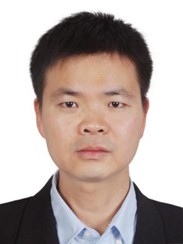
Speaker: Zhunga Liu, Northwestern Polytechnical University, China
Title: Reform of Training Mode for Aerospace Characteristic Automation Talents
Abstract: Higher education shoulders the heavy responsibility of cultivating outstanding talents in the field of aviation and aerospace in China. This report combines the implementation of the action plan for cultivating first-class talents in the School of Automation, Northwestern Polytechnical University. Some achievements about talent cultivation work will be present, and it includes reforming talent cultivation models, strengthening student guidance and evaluation, constructing an open and collaborative education pattern, and so on.
Zhunga Liu, is a professor in School of Automation, Northwestern Polytechnical University (NPU). He obtained the Bachelor and Master degree from NPU in 2007 and 2010 respectively, and the Ph.D degree from Telecom Bretagne, France in 2014. Now he serves as vice dean in School of Automation, NPU. His current research interests mainly include information fusion, pattern recognition. He was awarded First prize of Shaanxi Provincial Science and technology. He serves as Board of Director in The Belief functions and Applications society since 2017, and Program Committee Chair of 6th International Conference on Belief Functions (BELIEF 2021). He is the associate editor of IEEE TSMC.


